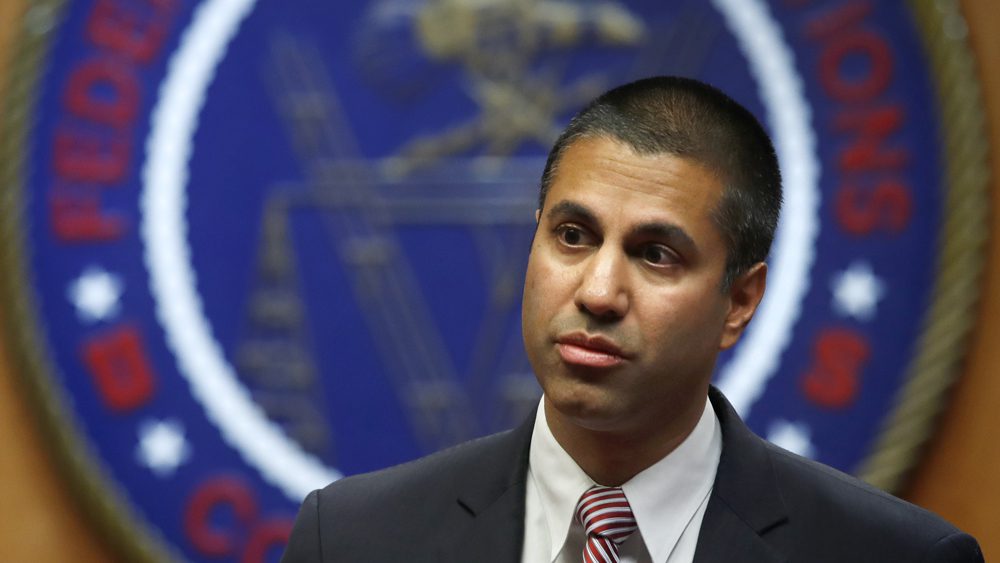New Jobs at the Biggest Players in Telecom

Telecommunications firms help keep people connected. Did you know that 781 billion text messages are sent every month in the United States? That means that, on average, Americans send and receive about 94 text messages per day. More importantly, did you know that an estimated 240 million calls are made to 9-1-1 in the U.S. each year? In many areas, 80 percent of these calls are from mobile devices. These numbers put into perspective the importance of telecommunications, and the need for continued innovation in those fields. Continue reading…
New MBA Jobs at the World’s Top Mass Media & Telecom Firms

The world is more connected that ever before. What’s possibly even crazier is how many of the channels, services, and providers of these communication streams are all run by a handful of powerful companies. This week, we’re taking a look at some exciting new MBA jobs in the world’s largest mass media and telecom firms. If you’re looking to help companies innovate in order to help people connect and communicate with one another, these new MBA jobs are for you.
New MBA Jobs: IBM, BB&T, Comcast, Deloitte, and Chevron

Want to know the best new MBA jobs out there? This guide is where you want to be. Browse some of the top job openings at the following top MBA employers below, and apply today! Continue reading…
The Potential Impacts of Net Neutrality on Higher Education

F.C.C. Chairman Ajit Pai’s decision last week to repeal Obama-era net neutrality regulations, which inhibited ISPs from paid prioritization and interfering with users’ online experiences, could have widespread implications beyond the speed of your Netflix stream.
A host of critics argue that the controversial new initiative essentially deregulates the Internet from a governmental vantage point and gives ISPs (internet service providers) free reign to control what you see as they see fit. That could mean offering fast lanes to the highest bidder—at the consumer’s expense, naturally—or censoring any content that might be remotely critical of, say, AT&T’s political position.
Pai believes the repeal will foster competition and ultimately benefit consumers. “Broadband providers will have more incentive to build networks, especially to underserved areas,” he told the NY Times after the F.C.C. cast its final votes on December 14. The vote split directly on party lines, with Republican commissioners winning by a count of 3-2.
After the vote was concluded, Mignon Clyburn, one of the two Democratic commissioners to vote no on the new provisions, said, “I dissent, because I am among the millions outraged. “Outraged, because the F.C.C. pulls its own teeth, abdicating responsibility to protect the nation’s broadband consumers.”

F.C.C. Chairman Ajit Pai. Photo via AP/Jacquelyn Martin
In terms of public relations, ISPs appear conflicted about which foot to lead with. According to Wired, in the months leading up to the repeal, Comcast publicly shared a net neutrality pledge and then quietly removed it once the votes were concluded, while Verizon promised not to open up fast lanes when it “already blocks mobile subscribers from accessing high-resolution video streams unless they upgrade to more expensive plans.”
It’s clear that this F.C.C. decision is a crippling blow to the utopian promise of the Internet, whose innovations were outgrowths of a level playing field. Netflix voiced disappointment last Friday, in which the company said “innovators, large and small, to oppose this misguided F.C.C. order.”
Consumer advocates are deeply concerned about the repeal’s impact on higher education, particularly in a moment where educators increasingly rely on YouTube lectures, video-chat services, and distance learning applications for their curricula.
There’s a scene in Werner Herzog’s 2016 documentary“Lo and Behold” in which he interviews Udacity founder and Stanford professor Sebastian Thrun about a robotics seminar, which was made available to the general public through open courseware technology. Two-hundred Stanford students enrolled in the class along with 160,000 students from the “open world.” Upon realizing that the highest achieving Stanford student ranked 413rd overall, Thrun remarked, “My God, for every great Stanford student, there are 412 amazingly great, even better students in the world.”
In an interview with Wired, Washington State University Vancouver’s Mike Caulfield explains, “Killing net neutrality will throw us back to the Dark Ages and the people that is likely to hurt most are actually rural populations that don’t have face-to-face access.”
In an interview with EdWeek, Consortium for School Networking Executive Director Keith Krueger explained matter-of-factly, “School systems will now face a bleak reality: reduced choices, higher prices, and fewer innovative tools.”
The introduction of “slow lanes” has the potential to impact peer-to-peer interactions like videoconferencing, as well as institution-wide adoptions of cloud-based models. Caufield explains, “Science or programming courses might require students to download large data sets that, if relegated to a slow lane, would take a prohibitive amount of time to download, or could help burn through data caps.”
There is a more pervasive worry that “education companies that rely on relatively fast delivery of content to schools could lose out to deep-pocketed vendors that can afford to pay internet service providers more for faster, higher-quality access,” according to an EdWeek article.
In a captivating Medium entry, Tressie McMillan Cottom, a sociology professor at Virginia Commonwealth University and faculty associate at the Berkman Center for Internet & Society, says that while changes to how Americans use the internet might not change right away, it will likely affect the amount of resources available to students who utilize online education.
“Online education was built, and sold to stakeholders, on the premise of affordable, accessible internet access,” Cottom writes.
“The concern is that companies tend to want to maximize profit. It isn’t hard to imagine telecom companies allowing companies who can pay for premium internet space to skew what is and is not available on the internet.”
Cottom telegraphs what she calls the “doomsday predictions”: charging escalating prices for basic internet consumption, leaving poorer, disadvantaged users with worse options. And that, Cottom explains, doesn’t even consider the potential socio-political ramifications. “For many, the end of net neutrality also means the regulation-by-capital of online spaces where minority groups shut out of traditional media, politics, and economies have thrived (albeit always at the precipice of precarity),” she says.
Other critics, such as University of Michigan professor Kentaro Toyama, in an recent interview with EdSurge, says that the issue was not the repeal vote, but the “already eroding” nature of the internet itself. “Technical systems are predominantly paid for and operated by private companies, which exert a lot of control,” he notes.
Indeed, before the vote, some of the largest ISPs were already practicing speed-throttling tactics, such as Comcast’s “unlimited” phone data plans that slow down after 20GB of use, and Verizon, which was caught earlier this year slowing down user speed.
But when it comes to higher education, Toyama is not worried. “Though there might be some marginal impact on the degree to which online courses like mine could be viewed by any given student, it is unlikely to be at a level noticeable by the average user,” he says.
The F.C.C. responded in defense of their new initiative that ISPs will have to publicly disclose any practices that block or throttle access to online resources, but Ed-tech advocates believe these so-called “transparency requirements” will simply force education officials to accept whatever terms are placed in front of them.
Searching for the World’s Top MBA Recruiters: Comcast

Ever year, new MBA graduates are entering the workforce, and companies throughout the world seek new ways to benefit from their educational experience and knowledge. Major companies like the Comcast Corporation seek young professionals to contribute their talent to the company in a number of different ways.
Based in Philadelphia, PA, Comcast is a telecommunications conglomerate that has been taking over the globe since its founding fifty-four years ago in Tupelo, Mississippi. From internet provider to producers of feature films through the NBCUniversal (another one of our favorite MBA recruiters) division, Comcast has an expansive number of markets it can reach.
Today, Comcast makes more than $19.7 billion in media revenue, 88 percent of which comes from its NBCUniversal division. The remaining revenue comes from its cable business and from ownership of the streaming service Hulu. As of December 2016, Comcast employed 153,000 people among its various divisions. Ever looking to expand its reach, Comcast offers a number of opportunities for ambitious MBAs to gain experience and start careers at one of the world’s top media conglomerates.
Why Work at Comcast?
The appeal of working at a company like Comcast can be seen in the numbers: close to one million people have applied for a job at Comcast or one of its divisions every year since 2012. One reason may be the diversity in the kind of work one can do at the company—from creating new television shows to creating new apps and innovative products. With roughly 2,000 positions available at any given time, Comcast is always seeking passionate and entrepreneurial individuals who will help shape the company as it continues to grow and change.
Comcast also offers employees a number of opportunities to grow in their careers and at the company. Valuing teamwork, creativity and entrepreneurship, the company is always looking to empower individuals that represent these features and provide opportunities for them to use their talents in more ways.
Getting Started
Current MBAs looking to get their foot in the door at Comcast have a couple of different ways to do so. Students in the first year of their MBA program have the chance to pursue an internship at the company’s headquarters in Philadelphia. The preferred candidate for this specific internship would be between their first and second year of an MBA program, and have more than five years of professional work experience. Internship focuses for MBA students can occur in a wide variety of fields, including:
- HQ Functions
- Video Business Unit Strategy
- Internet Product Strategy
- Sales & Marketing
- Marketing Intelligence & Insights
- Corporate Strategy
- Integrated Talent Management
MBA students in their second year may also pursue a slot in Comcast’s MBA Rotational Leadership Program, which offers individualized placement into career-accelerating positions after a two-year rotational period. Students will have the ability to work on critical business projects in a variety of areas within Comcast and NBCUniversal, receive exposure to senior leadership through projects and development sessions, and gain access to mentorship through the programs cohort structure and interaction with peer advisors, mentors and program managers.
The ideal candidate for the MBA Rotational Leadership program has more than five years relevant work experience and a track record of academic excellence. The perfect MBA for this role must be a self starter, communicate effectively, and be passionate about innovation.
YOU MAY ALSO LIKE: Want To Work For NBCUniversal? An MBA Can Help
What Types of Jobs are Available?
MBA students and graduates applying for jobs at Comcast after earning their degree will find a number of opportunities available. Here are just a couple roles currently open for MBA students and graduates:
-
Director of Contracts Management — Technical Operations
The Director of Contracts management will be responsible for the drafting, evaluation, negotiation, and execution of all types of contracts. The director will monitor all contract work to ensure progress, assist in the training and development of a qualified frontline staff and manage the outsourcing of contract drafting and negotiations. The estimated salary for a Director of Contracts Management is between $98,000 and $144,000 per year, according to user statistics provided by Glassdoor.
-
Pricing Analyst
The role of Pricing Analyst at Comcast helps to provide insights to the finance and marketing departments to make decisions for pricing in the Comcast Business division. The person in this role will use business analysis to help gather data and create reports that can help provide business leaders with continued recommendation leaders. The role requires a deep understanding of operational processes, marketing strategy, and strong interpersonal communication abilities.
-
Senior Business Operations Manager
Currently open for applicants in the Philadelphia and New York City metro, the Senior Business Operations Manager role with FreeWheel, Comcast’s premium distribution advertising company, is part of the team “responsible for monitoring and providing insights into the health of the overall business.”
The role typically requires six or more years of professional experience and an MBA degree is preferred for the specific responsibilities of the position. According to user statistics provided by Glassdoor, Senior Business Operations Manager tend to make close to or more than six figures per year in the U.S.
-
Director, Strategic Analytics
This role, currently open in the Philadelphia metro, unsurprisingly requires a lengthy and comprehensive understanding of business analytics, down to requisite knowledge of tools like R, SAS, and SQL, as well as 10 or more years of professional experience in the fields of computer science, finance, marketing, statistics, economics, and other related fields. Like the Senior Business Operations Manager role mentioned above, an MBA degree is not explicitly required, but Comcast notes it is “strongly preferred” for the position.
Check out more of Comcast’s currently open positions for MBA students and graduates today.
Want To Work For NBCUniversal? An MBA Can Help

NBCUniversal is among the world’s largest entertainment companies, bringing “the development, production, and marketing of entertainment, news and information to a global audience.” From television networks and a motion picture company to theme parks and Internet-based businesses, NBCUniversal is the perfect place for an MBA to put their degree to work.
NBCUniversal History
Both NBC and Universal were founded in the early 20th century, with Universal opening in 1915 as “the only moving-picture city in the world” and NBC as the nation’s first permanent radio networking beginning in 1926. Over the years, the companies have been responsible for some of the most memorable moments of entertainment history, such as the 1936 Berlin Olympics broadcast over NBC Radio, hosting the first presidential TV debates between John F. Kennedy and Richard Nixon on NBC in 1960, and the premier of now-classic films like Back to the Future on Universal.
In 2004, NBC and Universal officially became one company—NBCUniversal—joining together cable networks like USA, SCI FI, Bravo and others with Universal’s movie studio and theme parks in Hollywood and Orlando.
Why Work at NBCUniversal?
With such a vast portfolio of companies and networks within NBCUniversal, someone with an advanced business degree can find a number of places throughout the company that can benefit from their in-depth business knowledge and leadership. Roles are available at the company all throughout the country in a number of business fields such as Human Resources, Business Development, Communications, Finance & Accounting, Marketing, Ad Sales, Public Relations, and more.
Getting Your Foot in the Door
NBC Universal offers a number of Internships and Campus 2 Career programs that give opportunities to both undergraduate and graduate students, with many of these opportunities can lead to full-time roles. Through the Campus 2 Career center at NBCUniversal, a number of roles are available in fields like Marketing, Human Resources, Web Content Management, Ad Sales and more.
Every semester, recruiters from NBC Universal request interns through the Campus 2 Career center. The company also hosts special recruiting and networking events, working alongside organizations such as the Society of Hispanic Engineers or the National Black MBA Association (NBMBAA).
YOU MIGHT ALSO LIKE: Top MBA Recruiters: Time Warner
Typically, internships at NBCUniversal run from three to four months long, coinciding with the school semesters. The internships are paid, although salary varies by department, and—while not guaranteed—can often result in getting hired for a full-time role with the company.
For recently graduated MBAs, the company also offers a number of Early Career & Leadership programs, such as the East/West Coast Page Program or the Experienced Commercial Leadership Program.
What Type of Jobs are Available?
Through the Campus 2 Career program, NBC Universal has a number of openings for interns in a variety of business departments. Below are just some of the roles currently available at the company which specifically seek MBA candidates.
- Digital Distribution MBA Intern—Universal City, CA
- MBA Strategy & Business Development Intern—Universal City, CA
- Home Entertainment: MBA Strategy Intern—Universal City, CA
NBCUniversal is dedicated to advancing the careers of individuals who are passionate about their work and want to move into higher-level management or leadership roles. Programs like the International Future Leaders Programme expose early-career post-graduates to four different roles over the course of two years, allowing them to experience work in all three of the company business units. Participants in this program will also gather together at the end of the program to work on a project with a real impact within the company. They will also attend a number of courses specifically designed to train up-and-coming managers.
Programs like the NYU Stern School of Business full-time MBA, which gives students an opportunity to focus their studies towards earning a career in the entertainment industry, give a definitive advantage. Several Stern MBA grads do, in fact, work with the entertainment giant.
Even if the path of an MBA may not be your preferred journey, you can always become a page.
